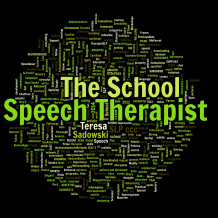Have school Speech Language Pathologists lost their focus?

When I went to school my courses focused primarily on child development, language acquisition, understanding how the brain worked (and didn’t work), remediation techniques for articulation and language and learning about disabilities that resulted in a language delay or impairment. We didn’t just learn about working with kids or adults but all ages and disabilities. My coursework was clearly based on a medical model but I was trained to work in all settings.
Throughout my career, I’ve carefully evaluated my students, identified their strengths and weaknesses through testing designed specifically to assess language functioning across receptive, expressive and pragmatic areas. Based on my testing, I wrote goals that focused on improving “language” abilities. I always felt that my purpose was to target and improve underlying language skills. The goal was to improve language abilities so students could be on the path to develop mature adult language, function among their peers, work independently, do well in school, have a shot at successful higher education and become productive adults.
At what point did the role of the Speech Language Pathologist change within the public schools? Who was it that thought it would be good for the Speech Language Pathologist to base their goals on the curriculum rather than the child’s development or skill level? Several years back in one school system I worked for, it was made very clear to me that we were not supposed to be thinking in the “medical model”. I found that just absurd since language and learning are brain based. My vast experience also told me that if students did not acquire language in a prescribed developmental manner gaps in language development, understanding and usage, would be the end result.
The way we are supposed to provide “therapy” and write goals has changed, yet our testing and most of our materials have remained the same. That’s a clue right there. The materials we use are rarely leveled. We use our clinical judgement to find appropriate starting points, when to raise/lower the bar and when modification of instruction/material is needed. Language develops on a continuum, ideally developing and improving slowly over time. Language skills are extremely difficult to measure on a weekly basis. With any luck at all you are raising the level of the material slowly but how can that really be reflected in the goal?
I know I sound like an old therapist who can’t accept change. Perhaps maybe that’s part of it. However, I also know that children need strong underlying language abilities to “access the curriculum” (I am so sick of that term). Writing our goals and changing our methods to reflect specific curriculum will not target underlying skills, no matter how you spin it. It’s my belief that working on language through curriculum only promotes the development of splinter skills. We are therapists not co-teachers. That doesn’t mean that I am not familiar with school curriculums or that I don’t occasionally incorporate a vocabulary list, book or specific classroom task into therapy. Reality is school Speech Language Pathologists only see students 1-2 times a week, hardly enough time to keep up with specific classwork. Therapy groups may consist of students from different grades/classes. That alone makes working within curriculum on a regular basis impossible. (I do realize there are other effective therapy models that are designed to work within the curriculum but those SLP’s are not carrying 50+ students on a caseload and those schools are supporting time for program development.)
My feeling is schools do not realize what skills Speech Language Pathologists bring to the table. They don’t understand how extensive and varied our training was. Note that School Psychologists (who also base their training on a medical model) have not been asked to change in the same way Speech Language Pathologists have. Because we are trained in the medical model we have a deeper understanding of why students have language/learning disabilities. We know how to help remediate language using specific techniques/materials unrelated to school curriculum. We need to reclaim our role as “therapists” in the public schools. Given the changes that have taken place in education, I’m not sure that’s possible.
Professional Liability Insurance for SLPs








Really great post. I understand what you are saying and really hadn’t thought about how this shift happened. I was trained in the same way you were. Somehow, our only validation in the schools is to help students “access the curriculum.” When did this happen?
Absolutely right on! I could not have put this as well as you did but you definitely zeroed in on a huge issue for the school-based SLP today. Thanks for sharing – and don’t quit reporting the truth!
I wholeheartedly agree. I started out in acute care/rehab and made to jump to public school when I wanted to stat a family. I consider myself a clinician, despite having the job title “teacher”on my contract. Recently, I switched back to using SOAP notes for data collection, because I want to stay true to my therapist roots!
I barely have time to keep notes at school:) Thanks for taking the time to respond
Teresa